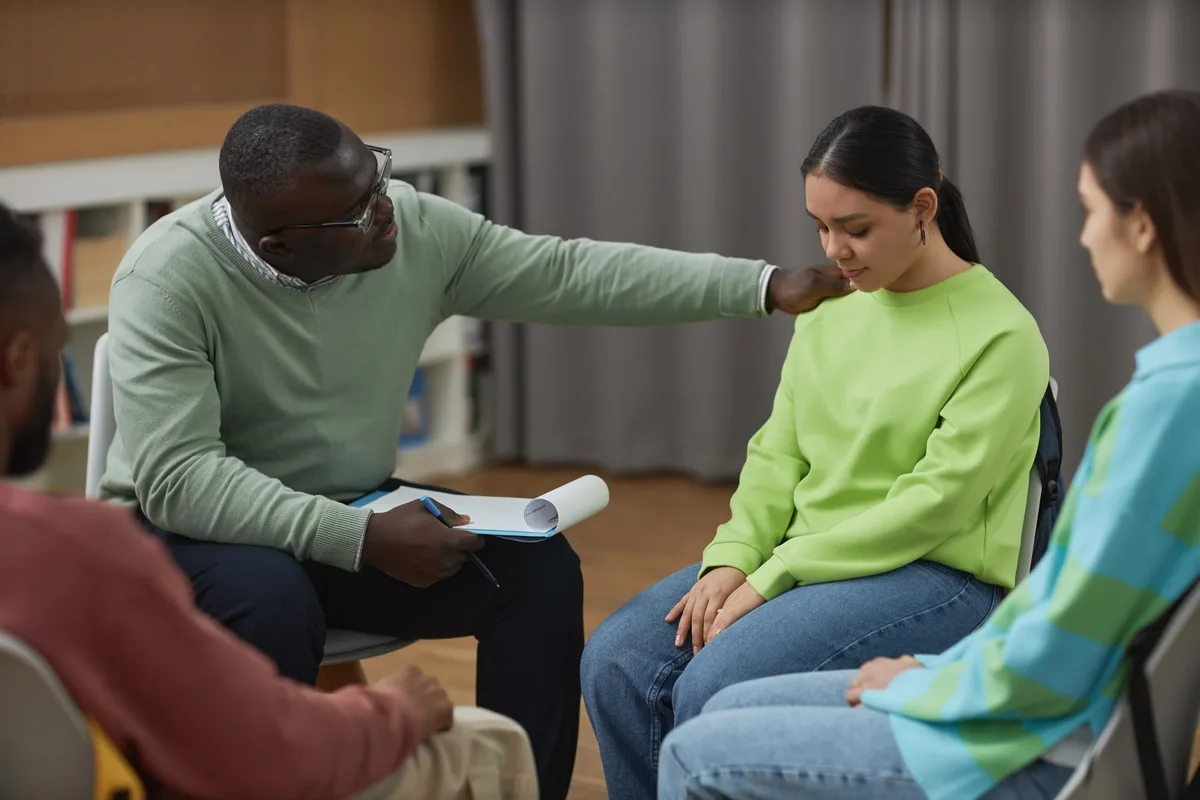24/7 Helpline:
(866) 899-221924/7 Helpline:
(866) 899-2219
Learn more about Aftercare Support centers in Pitt County
Aftercare Support in Other Counties

Other Insurance Options

Private insurance

Optima

Optum

Lucent

Magellan

EmblemHealth

Oxford

Evernorth

Cigna

Sliding scale payment assistance

Regence

Medical Mutual of Ohio

Access to Recovery (ATR) Voucher

Covered California

GEHA

Horizon Healthcare Service

Health Choice

MHNNet Behavioral Health

ComPsych

UnitedHealth Group

WeCare Residential Facility
WeCare Residential Facility is a residential treatment facility for children with mental health issu...



































































































































































































































































